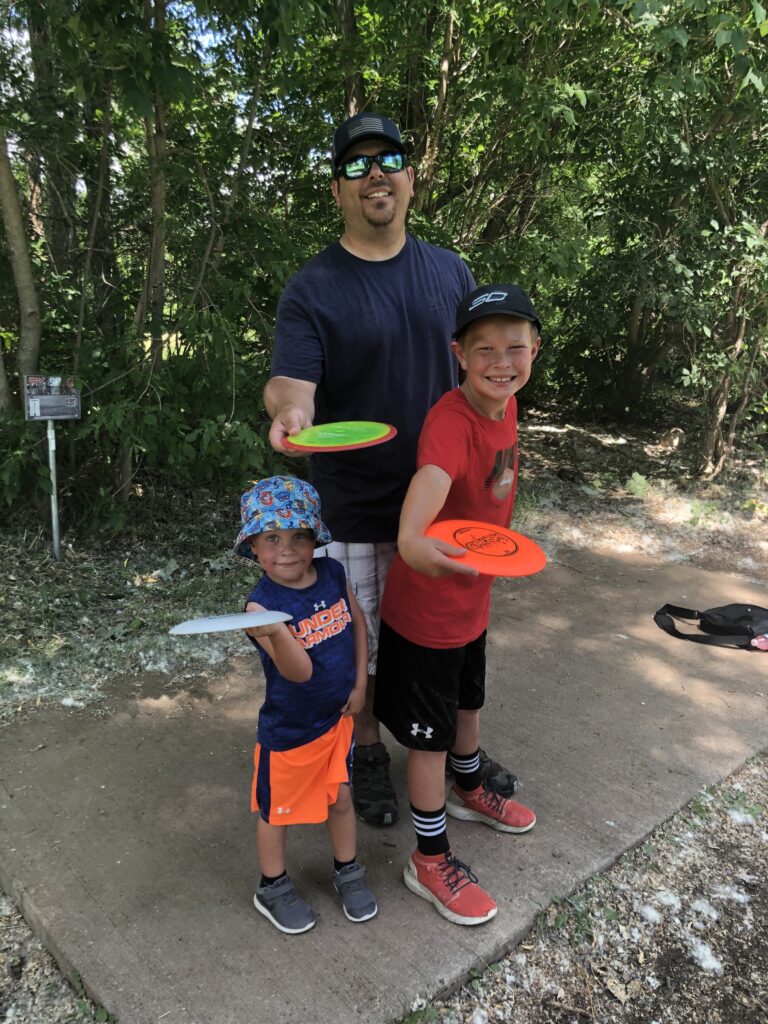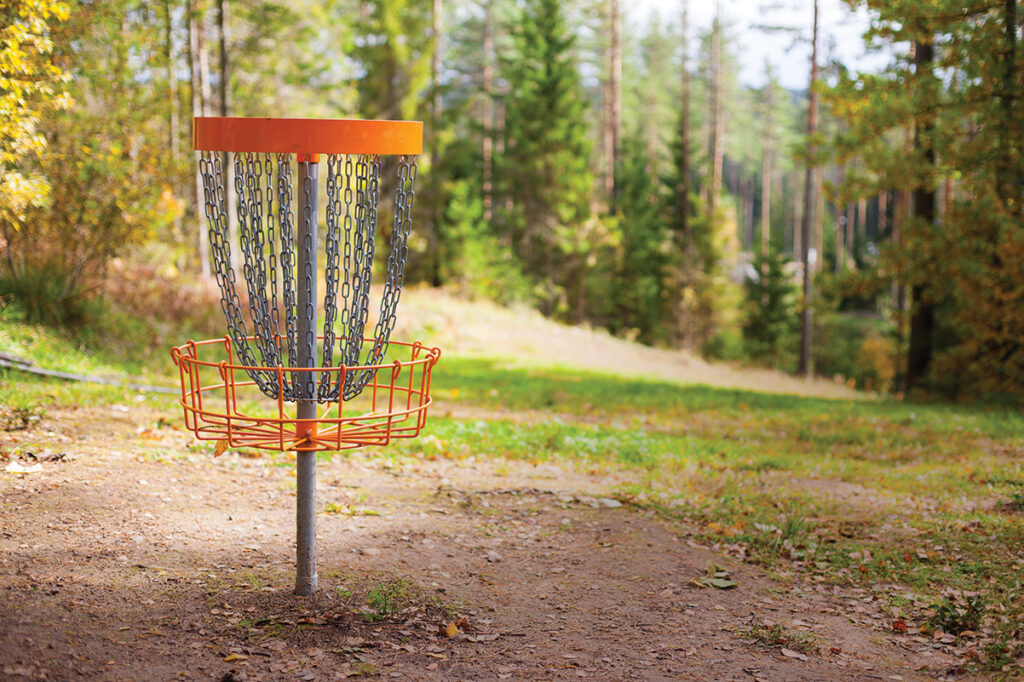Disc golf is a great way to get outside and get moving without needing a lot of equipment. The sport is easy to play and doesn’t require a lot of skill or know-how to get started.
How to play
The premise of disc golf is exactly like normal golf: take the fewest number of swings — or in this case, throws — to get through a hole. There are discs specifically designed for disc golf, and they are very affordable. Any frisbee you have on hand will work to test the sport out, however, so don’t feel you have to buy new equipment the first time out. Everyone in the group will need at least one disc of their own to play.
When you arrive at a course, you should see a map or sign that explains the layout of the course and points you to the first tee box. Some courses in the hills will have small concrete pads for tee boxes that you’ll need to stay within when teeing off. If there isn’t a concrete pad, simply stay behind whatever is marking the tee; it could be a board, a log, or simply a sign with the hole number.
Once everyone has thrown from the tee, play continues with whoever’s disc is the furthest from the hole. Make sure everyone pays attention when someone is throwing so nobody gets hit by a flying disc. It also helps to watch where throws go, in case people need help searching. Your final target for the hole is a metal basket with chains, which help your disc fall down into the basket rather than deflect off. Many of our courses in the hills are next to water, trees, and ravines, or rocky hillsides, so make sure everyone wears sturdy shoes. Be ready to help if a disc gets stuck somewhere that’s hard to get to, like in trees or through rough underbrush.
Discs come in different types, much like golf clubs; you can buy a driver, midrange discs akin to woods, and a putter. If your family really enjoys disc golf, look into upgrading your discs for better distance and control. There are also leagues and clubs around the Black Hills you can join to meet others who play or for some fun competition.
Ask the expert
Todd Hagen is the Sport & Games Specialty Shop Leader at Scheels, and a disc golf aficionado. While a Frisbee can get you started, he recommends checking out discs specific to the sport: “For families who have never played, we have great disc golf sets for beginners with a putter, midrange, and a driver. They’re affordable and will make learning the sport more fun than a traditional Frisbee.” Each type of disc has unique flight characteristics. For example, a driver is meant for speed and distance, while a putter is meant to give you more fine-tuned control.
As your family gets comfortable with the basics, you can start shopping for individual discs. On the top of a disc, there are four numbers: speed, glide, turn, and fade. For beginners, a lower speed and higher glide will provide a more forgiving disc, while a turn and fade close to zero will help you learn more about your throw. Todd says, “I tell people to start with ones that throw fairly true. When you look at a disc, look for a turn number that’s close to zero so you can get a feel for how you throw and then work from there.” If you or your kids find your disc is constantly turning one direction or another, finding one with an appropriate turn rating can help you throw more successfully. Likewise, as you learn to aim consistently, you can start looking for discs with higher speed to increase your distance.

He enjoys playing disc golf with his sons, Hayden and Beckett.
Photo courtesy of Scheels.
The last thing to consider is how to carry your new collection of discs. A simple backpack is sufficient, but there are disc golf carriers that allow for more organization for easy access. Todd says, “I always recommend families get a bag for their discs, whether that’s a backpack or a specific carrier. That way you don’t have to worry about carrying a stack of them around on the course and potentially losing one.” Discs do get lost, however, and it’s good practice to write your contact information on the back of yours in case someone finds it. Most fellow disc golfers will happily get in touch with you if they find a disc and do their best to return it.
Where to play Disc Golf in the Black Hills
There are a number of courses in the hills, several of which post maps and hole information online. Also, keep an eye out for local tournaments, as there are a few annual events around the area.
- Center of the Nation Disc Golf, Belle Fourche
- Douglas Schools Disc Golf Arboretum, Box Elder
- Pageant Hill, Custer
- Ellsworth Disc Golf Course, Ellsworth AFB
- Hart Ranch Camping Resort Disc Golf, Rapid City
- Jackson Park, Rapid City
- Lacroix Disc Golf Course, Rapid City
- Omaha Park, Rapid City
- Spearfish Canyon, Spearfish
- Black Hills State University, Spearfish
- Sturgis Disc Golf Course, Sturgis
- Angostura Disc Golf Course, Hot Springs

WORDS: ASHLEY JOHNSON

